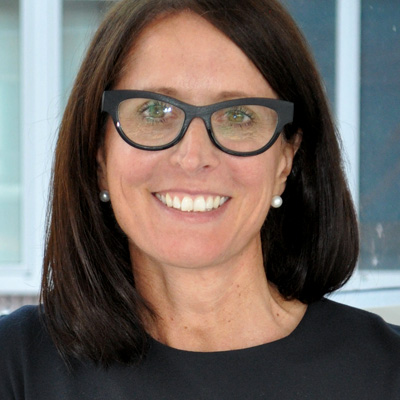
Cara Charles-Barks
Chief Executive
Salisbury NHS Foundation Trust
Cara joined Salisbury NHS Foundation Trust in February 2017. She began her career in 1990 as a registered nurse in Australia and has a wide range of clinical and management experience in both the NHS and Australian healthcare systems. She has completed both a Masters of Nursing and Masters of Business Administration.
Prior to moving to the UK she worked as a nursing director at The Queen Elizabeth Hospital in Adelaide. In 2008 she moved to the UK and worked as a deputy chief operating officer at Peterborough and Stamford NHS Foundation Trust before moving to become deputy chief executive/chief operating officer at Hinchingbrooke HealthCare Trust.
I joined the NHS 10 years ago having spent much of my career in Australia as a nurse. Personal development and constantly challenging myself is something I value. Throughout my career I have completed formal development in the form of degrees as well as more exploratory development through business and leadership schools.
As my career here progressed I found myself considering undertaking a chief executive role. I see the role as a real privilege, and wanted to be in a position where I could lead in a way that made a difference to my staff, patients and the community. I also wanted to help create a future NHS that continued to deliver against its values and remain firmly embedded in the principles by which it was established.
As my son who is an avid Spiderman fan often tells me ‘with great power comes great responsibility’ – and so it is for a chief executive. In stepping up, I wanted to be able to have the best impact I could.
Through participating in the programme, I now have 12 colleagues who will at the drop of a hat be there to share their knowledge and skills and help me navigate whatever challenge I am facing
I feel very lucky to have been selected to participate in the Aspiring chief executive programme and it has been a significant development journey. There are a number of things I would highlight but I think the most significant is the relationships that you build with the rest of the participants and programme sponsors over the year and the subsequent resilience that this provides.
Being a chief executive is a very lonely job and it is often difficult to find a trusted and safe space to talk about challenges. Through the programme I have met some truly inspiring individuals who would make amazing chief executives that I would love to work for.
Each of the participants is very different; with different backgrounds and experience, but as a collective we become incredibly powerful because we challenge each other’s thought processes, question each other’s assumptions and seek to ensure that each of us has a positive impact. More importantly, we collectively want each other to succeed and go out of our way to create learning opportunities for each other.
As a chief executive at the start of my career, I know that over the next 20 years I will have many challenges. But through participating in the programme, I now have 12 colleagues who will at the drop of a hat be there to share their knowledge and skills and help me navigate whatever challenge I’m facing. Access to such networks is really important if we are to build chief executives who are resilient and feel supported.
I know the experience I have had will make me a better chief executive and that’s what our patients and staff deserve.
The programme provides a great framework for the requirements of undertaking a chief executive role and gave me a real insight into the expectations and reality of what the role is like. Many senior NHS leaders gave their own time to share their experiences, the lessons they have learnt and the advice they wish they’d had. Their generosity is critical to the success of the programme.
The support, knowledge and skills of this wider network of existing experienced chief executives and leaders is invaluable. Their commitment to supporting new leaders like myself is crucial to success after participating in this programme.
Being part of the programme is a commitment, but it’s also a privilege, and you will get as much out of it as you put in. My advice is – embrace it, it will challenge you but it is a privilege not to be abused. There is real value in opening yourself up to reflect on the leader you are, the impact you currently have, and embracing the leader you want to become.
I know the experience I have had will make me a better chief executive and, at the end of the day, that’s what our patients and staff deserve.

